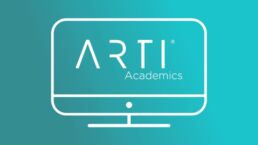Related Community Posts
How To Sign Up For Test Prep
The ARTI® Academics test prep is a learning tool designed to increase students’…
New Technology From ARTI
One of our goals as the education team is to provide valuable and learner-centric…
Are You Still There
One of our goals as the education team is to provide valuable and learner-centric…
How to View Your Completed Classes
You may have tried to sign up for a certificate or a course and received the error…
The Best Real Estate School in Utah and Nevada Just Got Better
It is important that the information in your ARTI Academics account is current and…
Everything You Need to Know about Nevada Real Estate Classes
What Makes the Best Online Real Estate School Online education has increased in…
Certificate of Completion: Not In My Inbox
One of our goals as the education team is to provide valuable and learner-centric…
Best Online Real Estate School
What Makes the Best Online Real Estate School Online education has increased in…
Get your real estate license at Arti Academics
Real Estate Licensing Everything you need to know about getting your real estate…
Course Sketch
Learn how to access the review before, during and after taking course and…
Real Estate Agent vs. Real Estate Broker: What’s the Difference?
When it comes to buying or selling a home, there are many professionals you can…
Real Estate Continuing Education – Utah
If you’ve stepped into the real estate agent game, you’ve likely heard that you…
Resources Available To Students
The ARTI Academics team is dedicated to providing valuable resources to our…
What Skills Are Needed To Be A Successful Real Estate Agent
As real estate agents, we must continuously enhance and develop our skill sets.…
ARTI Academics Offers First Real Estate Education Licensing App
Learning about real estate and obtaining a license just became a whole lot easier…
A Unique Online Learning Experience
There has been a myth that eLearning is for tech-savvy individuals; however, that…
Introducing Your Certified Real Estate School Coach
Providing the best overall real estate school experience is extremely important to…
5 Things You Should Know About Real Estate School
Before you get started, there are some key things that you should be aware of as…
How long does it take to become a real estate agent in Utah?
Earning your real estate license in Utah can happen in as little as 30 days.
How much does it cost to go to real estate school?
Real estate school is 100% Free at ARTI Academics. If you're considering going to…
Do you provide additional Real Estate training once I get my license?
Upon completion of the Real Estate pre-licensing requirements or during the process…
Top Real Estate Schools in Utah
Find out which real estate school in Utah is right for you. We compare each school…
Why you should consider a career in Real Estate?
Find out some basics of a career in the real estate field and whether or not it may…
How to become a real estate agent in Utah
Find out the three steps it takes to become a real estate agent in the State of…
How do I know Real Estate School is for me?
As a real estate agent, you will be assisting your clients make one of the most…
Is there a classroom setting to get my real estate license?
The pre-licensing courses on ARTI Academics is delivered online.
Does ARTI Academics offer Real Estate Exam preparation?
Upon completion of the courses, ARTI Academics offers a series of two review…
Is there a payment plan for real estate school?
Do I need coupons, promo codes, or payment plans for ARTI® Academics?
Does ARTI Academics offer real estate career insights?
Find out what a certified coach is and how they help as you progress through your…
What is the ARTI® Academics Test Prep?
The ARTI® Academics test prep is a learning tool designed to increase students’…
What is the organizational structure of the courses?
We want our students to make personal connections to the material that is being…
When will I receive the candidate education certifying document?
This document will be sent electronically to the email address registered to your…
Utah Real Estate School Coupons
Search no more because at ARTI Academics, no coupons or promos are needed!
How to Register for the Utah Real Estate Exam
Here are the instructions to register for the Utah Real Estate Exam!
Is the Utah Real Estate Exam Hard?
Often times we're asked if it is difficult to pass the test. The answer is no,…
What is the difference between a real estate broker and a real estate agent?
While the terms Real Estate Broker and Real Estate Agent are often used…
I’m Ready To Take My Utah Real Estate Test!
ongrats!! After you have completed the required 120 hours Utah Pre-Licensing…
How long do I have to complete the Utah Real Estate School Pre-Licensing?
While Utah's Division of Real Estate requirement is 1 year, we allow just 6 months.
How much will it cost before I can sell real estate?
Remember, when you go into the real estate business, you are an entrepreneur and…
How Can I Be Most Prepared to Pass the Utah Real Estate Exam?
Finishing real estate often school brings the question of 'am I going to pass the…
How Long Does it Take to Go Through Utah Real Estate School?
Many people wonder how long it takes to go through Real Estate School in Utah.
















Hello,
My name is Matthew Jensen and I enrolled in Arti during 2022. I had some health problems and had to stop online school for a bit where I was at 7% complete. I started back up this week as the course I had been taking started me back where I had left off and now am over 11% complete. I asked my coach if the year or more gap will cause any problems and he stated that I may need to start over. I called the DRE and they told me that as long as Arti lets me continue, they will accept my certificate. I have busted out a bunch of hours the last couple days and hope it wasn’t a waste of my time. Can my registration date be updated to more recent as I plan on having the course complete within the next 2-3 months. Please let me know so I can continue with this course.
Thank you
We count the completion date. So it is 1 year from the completion of the course that you need to take the pre-licensing test.